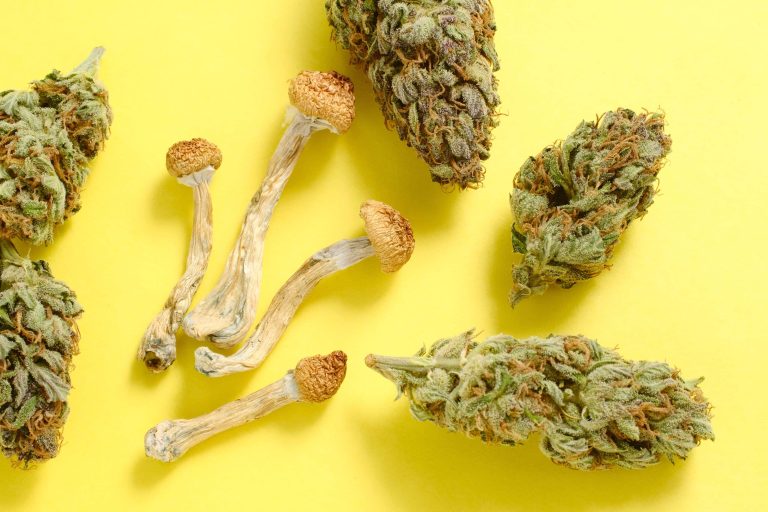The company, CaaMTech, first received a patent in support of the research in 2021. An article published Wednesday on the website Greenstate explains that the company “develops pharmaceutical drugs for mental health conditions like depression and obsessive-compulsive disorder,” and is now “researching the therapeutic value of psilocybin in combination with cannabinoids.”
“Through their research, CaaMTech has isolated derivatives of psilocybin, cannabinoids, and terpenes,” Greenstate explained.
In the 2021 announcement of the patent, CaaMTech founder and CEO, Dr. Andrew Chadeayne said that the company’s “goal from Day 1 has been to capture as much of CaaMTech’s scientific innovation as possible in our intellectual property portfolio as we develop the next generation of psychedelic drugs.”
“The allowance of our first patent application has given a shot of energy to the team that has worked diligently over these past four years to bring it to the finish line,” Chadeayne said in the announcement. “With hundreds of applications still to prosecute, this is a great start.”
“Strong patent protection and fundamental research give our drugs the foundational support that they need to proceed through clinical trials and become FDA-approved medicines,” he added. “‘Compositions and methods comprising a psilocybin derivative’ covers (among other subject matter) the synergistic modulatory effects of cannabinoids on the activation of serotonin receptors when administered in conjunction with a serotonin agonist. In simpler terms, CaaMTech has shown that cannabinoids work synergistically with psychedelic tryptamines in producing their effects. In doing so, CaaMTech has demonstrated the potential for two drugs once declared by the United States Federal Government to have ‘no known medical value’ to treat some of the world’s most challenging mental health issues.”
The announcement said that “notice of allowance [from the the US Patent and Trademark Office (USPTO)] is a watershed moment for CaaMTech’s intellectual property division, which has filed in excess of one hundred additional patent applications since the application was filed in 2017.”
“Allowance is the final hurdle of examination before a patent is issued,” the announcement said.
Since the approval of that patent in 2021, Greenstate reports that “CaaMTech has shared findings related to 4-PrO-DMT as a novel synthetic alternative to psilocybin, among other things.”
“Separate efforts may supplement this work, like the research survey from SABI Mind covering myriad topics, like the general acceptance or disregard for synthetic alternatives to compounds like psilocybin. These steps, alongside policy work, create wider access lanes for patients seeking trustworthy, science-based psychedelic therapies,” the outlet reported.
Developing the compound will not be easy. As MJBizDaily explained, there are “serious obstacles to creating a combo compound.”
“Cannabinoids and psychedelics act on different receptors in the brain. Cannabinoids such as THC binds primarily to the CB1 cannabinoid receptor; CBC binds primarily to the CB2 receptor. Psychedelics such as psilocybin bind primarily to 5-HT2A serotonin receptors,” the outlet reported.
“But there has been research showing that the cannabinoid CBD can bind to serotonin, and that, when serotonin is joined with a CB2 cannabinoid receptor, the resulting combination can do things that neither receptor can do on its own…Buoyed by the potential of the combo compound, the medical cannabis community is growing increasingly excited. For example, cannabis combined with psychedelics has been found to shrink tumors significantly in breast cancer.”
CaaMTech, based in Issaquah, Washington, bills itself as “the foremost drug discovery and lead optimization company focused on engineering psychedelic drugs that meet the standards of modern medicine.”
